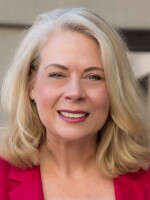Baby Boomers have been retiring in recent years, but an even more significant number have decided “to pack it in” amidst the pandemic. To back this up, a Pew Research Center analysis of monthly labor force data comparing 2019 to 2020 found the number of retired Boomers increased more than in prior years.
Well, at this time, I’m delighted to welcome back Catherine Collinson, president of nonprofit Transamerica Center for Retirement Studies, who is joining me to share perspectives on this current trend. So Catherine, what has your team’s research uncovered?
Catherine Collinson
In October 2020, we conducted a national survey about the employment of U.S. workers. A startling one in seven Baby Boomers (13 percent) said they retired early as a result of the pandemic, which is a high percentage in such a short period of time.
Al Waller:
As I think about it, a few of my friends retired for reasons ranging from fears about contracting the virus or reluctance, to the hassles of working in a cyber universe. Then again, there were others who began reassessing their life priorities especially given the uncertainties of the world at large due to COVID.
And while I didn’t really feel that it was appropriate to ask, I’ve started to wonder if they all were truly ready to retire.
Catherine Collinson:
Amid the pandemic, everything has unfolded so quickly. From a research perspective, we do not yet have a clear indication of their decision-making process. However, as a researcher, I’m worried. Over years of conducting research, we consistently find many people retired sooner than planned and without a written financial plan or contingency plans – and with relatively little savings that’s needed to last 20 or 30 years in retirement.
Al Waller:
Exactly, I mean if you go back to the recession that hit, the country and world between 2008-2010…a lot of people discovered they didn’t have adequate funds and resources to afford retirement, forcing many (reluctantly) back into the labor market.
So then, for someone who has recently retired or is maybe thinking about retiring, what are some of the preparations they should have made or be in the process of making?
Catherine Collinson:
Assess whether you are financially ready to retire. Do you have adequate income and savings to last throughout your lifetime? This involves creating a financial plan that factors sources of income, savings and investments, debt, healthcare insurance and medical expenses – and a budget among many other considerations.
Al Waller:
Well, that sounds like a significant undertaking and to your point, requires a good measure of personal awareness and honesty. I mean, regardless of how much you enjoy your profession, who hasn’t dreamed of sailing or riding off into the sunset?
But with that said, how does someone get started with this assessment process?
Catherine Collinson:
If you have savings in an employer-sponsored retirement plan, for example a 401(k), your retirement plan provider may have services to assist you with planning. You may also consider asking your bank, credit union, or other financial services organization for assistance. Whether you prefer to use a financial advisor or a do-it-yourself approach, there’s homework involved. You’ll need to set aside time to gather and organize information including financial accounts, debt, expected Social Security benefits, etc.
Al Waller:
Now, what if someone who recently retired realizes, perhaps they weren’t actually ready?
Catherine Collinson:
As the pandemic is hopefully winding down and employers are ramping back up, consider going back to work. Explore the opportunities and start putting out feelers. It’s a good time to polish your resume and LinkedIn profile. If traditional employment is not for you, consider freelancing, consulting, or starting a small business. Start sooner than later. The longer you wait to get back in the workforce, the more difficult it may be.
Al Waller:
Well as always, important insights and the unvarnished truth from Catherine Collinson. You’ve been tuned to another episode of ClearPath – Your Roadmap to Health & Wealth. Until the next time, this is Al Waller on WYPR, Your NPR News Station. Thanks for listening.
Clearpath is paid for by Transamerica Institute.





